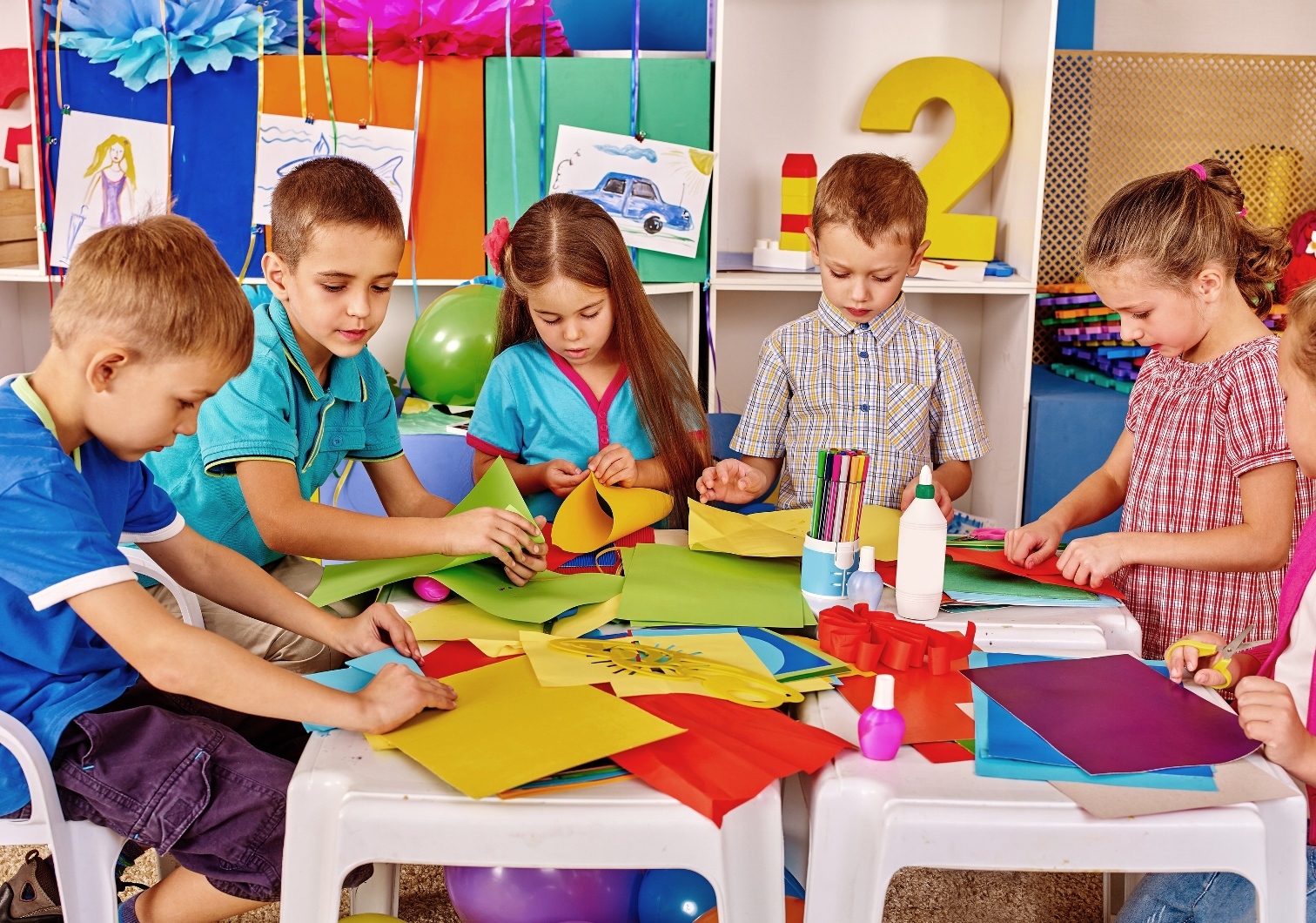The Five Domains of Kindergarten Readiness
Ready for school? The National Education Goals Panel* defines kindergarten readiness through five domains or pillars: Physical and Motor Development, Social and Emotional Development, Approaches to Learning, Language Development, and Cognitive Development.

A Closer Look at the Five Domains of Kindergarten Readiness
Physical and Motor Development refer to a child's physical development, physical abilities, and living environment. Areas such as growth rate and physical fitness, fine and gross motor skills, and general health and care-giving environment all need to be considered when addressing readiness for school.
It should be noted that each child's growth in these areas is highly individualized and often occurs at uneven levels, making assessment challenging for schools, educators, and parents. Regardless, physical well-being and motor development are central factors to a young child's early learning experience.
Social and Emotional Development refer to a child's self-esteem and their behavior when interacting with peers and adults. Framed from early-age interactions with parents and caregivers, the ability to form and sustain social relationships with adults and friends is central to a child's preparedness for school.
Factors such as a child's ability to listen to other points of view, provide help and support for friends, and the desire to make new friends positively influence a child's social and emotional development.
Approaches to Learning refer to a child's range of attitudes, habits, and learning styles. These are strongly influenced by temperament, gender, and cultural background. While perhaps the least researched readiness domain, understanding a child's learning style and beginning teaching when a child is ready to learn can greatly influence social, emotional and cognitive interactions.
Learning styles vary widely and are influenced by a child's cognitive abilities, approach to the learning process, openness to and curiosity about new tasks and challenges, task persistence and attentiveness, and capacity for invention and imagination.
Language Development is the acquisition of linguistic forms and procedures and the social rules and customs for acts of expression and interpretation. Language ability is generally divided into two areas: verbal language and literacy.
Verbal language skills include listening, speaking, and vocabulary. Literacy refers to the whole act of extracting meaning from printed symbols, which occurs far before a child begins "reading." Literacy skills include literature awareness, print awareness, and the writing process. Literacy is a highly valued dimension of early childhood learning where many unprepared children have difficulty.
Cognitive Development refers to a child's knowledge of their physical world, as well as the objects and their relationships. Encompassed within cognitive development are skills including representational thought (the ability to think about things not currently present), problem-solving, mathematical knowledge, social knowledge, and imagination.
Cognitive development is far more than recognizing shapes, colors, and letters of the alphabet -- it is how children think and understand the world around them.
The Most Important Factors for Kindergarten Readiness
According to recent data from the Santa Clara County Partnership For School Readiness, most kindergarten teachers spend an inordinate amount of time on the non-academic pillars during class time. Teachers stated that they could more easily develop academic skills (Cognitive Development and Language Development) if they didn't need to focus on areas like Social and Emotional Development.
Certainly, children need to be physically healthy to begin school, but making sure they're emotionally ready may be just as important as knowing their A, B, C's.
While each of the five kindergarten readiness domains need to be considered, a recent study by the American Psychological Association finds that children who enter kindergarten with a mastery of elementary mathematics and reading skills are more likely to experience future academic success!
Don't stop practicing the math and phonics skills just yet!
The KinderIQ free Kindergarten Readiness Test features dozens of online questions to help you assess your child's readiness for school and allows you to compare your responses to thousand of other parents so you know where to focus future learning activities.
*The National Education Goals Panel definition of school readiness, adapted from the National Education Goals Panel, "Getting a Good Start in School", Washington, D.C.: National Education Goals Panel.